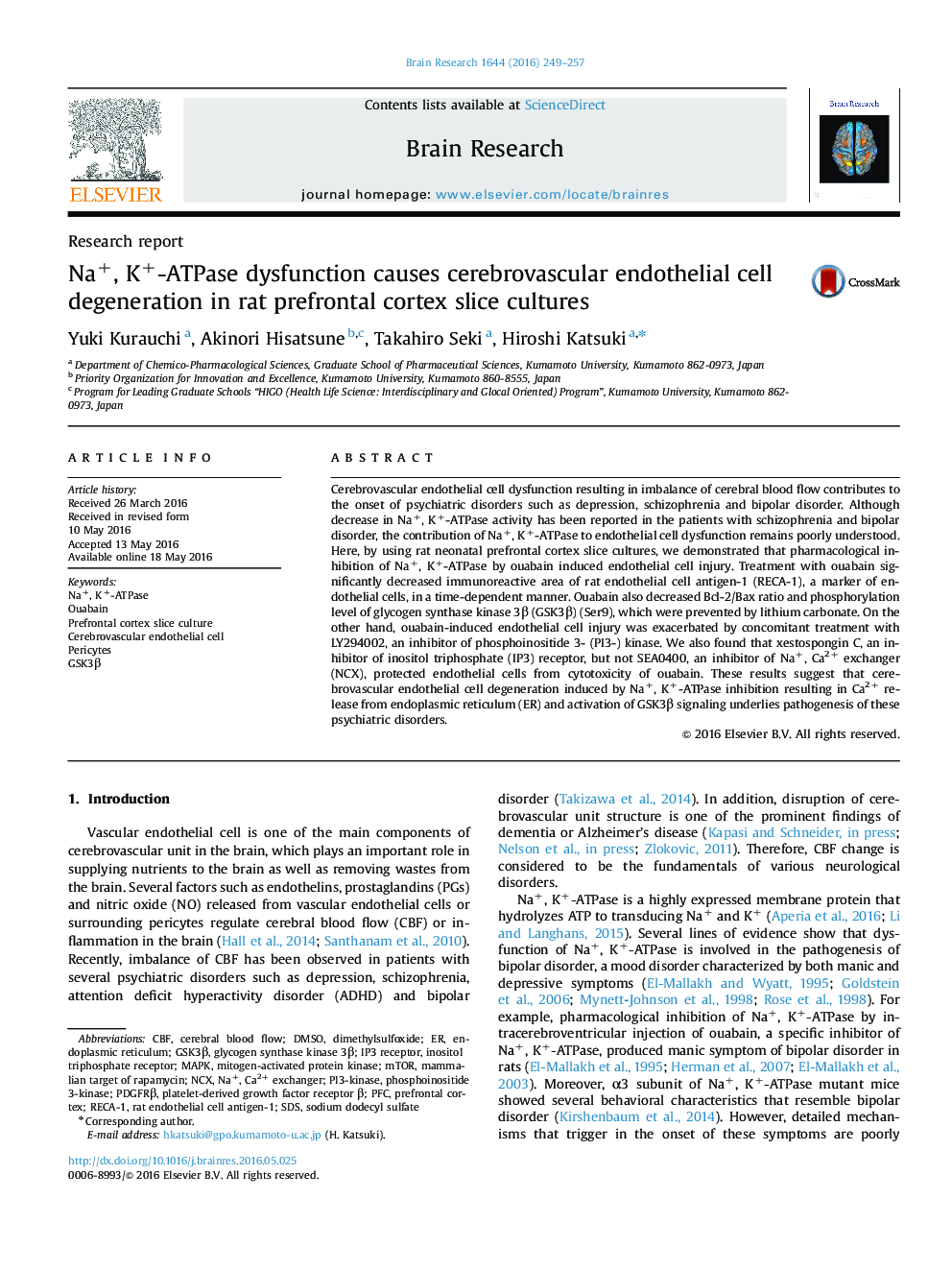| Article ID | Journal | Published Year | Pages | File Type |
|---|---|---|---|---|
| 6262469 | Brain Research | 2016 | 9 Pages |
â¢We evaluated cerebrovascular unit structure in novel organotypic slice culture model.â¢Na+, K+-ATPase inhibition causes cerebrovascular endothelial cell degeneration.â¢IP3 receptor-mediated Ca2+ release is involved in endothelial cell degeneration.â¢Inactivation of GSK3β protects cerebrovascular endothelial cells.
Cerebrovascular endothelial cell dysfunction resulting in imbalance of cerebral blood flow contributes to the onset of psychiatric disorders such as depression, schizophrenia and bipolar disorder. Although decrease in Na+, K+-ATPase activity has been reported in the patients with schizophrenia and bipolar disorder, the contribution of Na+, K+-ATPase to endothelial cell dysfunction remains poorly understood. Here, by using rat neonatal prefrontal cortex slice cultures, we demonstrated that pharmacological inhibition of Na+, K+-ATPase by ouabain induced endothelial cell injury. Treatment with ouabain significantly decreased immunoreactive area of rat endothelial cell antigen-1 (RECA-1), a marker of endothelial cells, in a time-dependent manner. Ouabain also decreased Bcl-2/Bax ratio and phosphorylation level of glycogen synthase kinase 3β (GSK3β) (Ser9), which were prevented by lithium carbonate. On the other hand, ouabain-induced endothelial cell injury was exacerbated by concomitant treatment with LY294002, an inhibitor of phosphoinositide 3- (PI3-) kinase. We also found that xestospongin C, an inhibitor of inositol triphosphate (IP3) receptor, but not SEA0400, an inhibitor of Na+, Ca2+ exchanger (NCX), protected endothelial cells from cytotoxicity of ouabain. These results suggest that cerebrovascular endothelial cell degeneration induced by Na+, K+-ATPase inhibition resulting in Ca2+ release from endoplasmic reticulum (ER) and activation of GSK3β signaling underlies pathogenesis of these psychiatric disorders.
